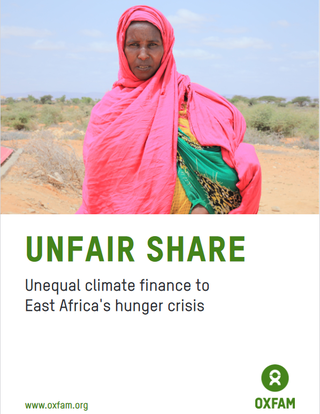
UNFAIR SHARE: Unequal climate finance to East Africa's hunger crisis
The stark reality of climate change has highlighted the financial obligations rich polluting nations, especially in the global North, owe communities and countries most impacted and now unprepared to deal with the unavoidable cost of the climate crisis. East Africa is one of the world’s worst hit regions by climate change and is now experiencing its worst climate-induced extreme weather, fueling an alarming hunger crisis, despite contributing almost nothing to global carbon emissions.
The global climate crisis, caused in large part by greenhouse emissions3 because of human reliance on fossil fuels for energy and manufacturing4 , has led to a 1.1-degree Celsius increase in average temperature worldwide. This has resulted in extreme weather patterns, leading to food insecurity and hunger for vulnerable populations, including for 31.5 million people in East Africa who are currently experiencing crisis levels or worse of hunger due to drought and flooding. Despite contributing the least to climate change, these countries are suffering the extreme hardship and economic losses which they can ill-afford. The paper argues for greater accountability from polluters to cover the costs of averting environmental and human damages and to support long-term development efforts to build climate resilience in affected communities.